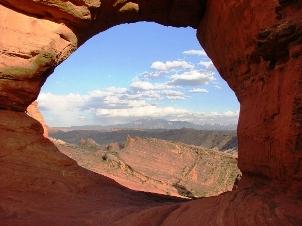- Geology 161
- Geology 165
- Geology 166
- One Day Geology Field Trips
- Geology 180: Yosemite National Park
- Geology 181: Sequoia and Kings Canyon
- Geology 186: Eastern Sierra
- Geology 185: California's Volcanoes
- Geology 187: Death Valley
- Geology 191: Geology of the Colorado Plateau
Physical Geology 161
Due to Covid, this class is entirely online this year. Some links may be obsolete.
Syllabus & Documents
- Geology 161 Syllabus (pdf)
- Midterm Study Guide (pdf)
- Final Exam Study Guide (pdf)
- Final Laboratory Exam Study Guide (pdf)
What to Expect
What will you know when you finish this course? What new skills will you have? The following items are the Student Learning Outcomes (SLO’s) for Physical Geology. Upon successful completion of the course, you will be able to:
Analyze the elements of the scientific method and explain how these principles apply to the study of the earth. All sciences share a common methodology of attaining knowledge that seeks to eliminate bias and prejudice in research. You will know the difference between a hypothesis and a theory (and it may very well not be what you think!).
Explain the geologic processes of tectonism, erosion, and mineral and rock formation. You live in one of the most diverse landscapes in the world: there are few places where you can start driving in a hot desert, go up and ski for a few hours, and then go to the beach to work on your tan. Almost every important geologic process has an example taking place in this state, and you will understand how they work. Not to knock pop culture, but you will know more about geology than literally any television or newspaper reporter. You will be criticizing and critiquing the news regularly, especially when they make mistakes about earthquakes and volcanoes.
Use the basic geologic principle of uniformitarianism and the examples of present-day geologic processes to explain the formation and evolution of the features of the earth. Many people are surprised that a geologist can look at a few rocks in a roadcut or mountainside and then immediately tell a complete story of how those rocks came about. In this class, you will learn the set of principles that geologists use to tell the story of the rocks. You will have the ability to interpret the story in the rocks yourself, either in pictures and diagrams, or by visiting the localities yourself.
Assess and evaluate competing hypotheses regarding the concept of geologic time, the origin of the earth and solar system, and plate tectonics. Geologists are still arguing about geological processes. This is how science is meant to work, so we will be learning how controversies and arguments are settled in geologic research.
Explain the necessary role of the geologist in the modern technological society in areas such as urban planning, the search for new energy resources, and environmental research. Are politicians correct when they say global warming is not real? Do we have enough water for the population of the state? Should we be covering the agricultural soils of the Central Valley and building cities? Geologists have a lot to say about these issues, and you will understand how scientists approach these problems.
In the laboratory:
Test for the physical and chemical properties of minerals, and identify the most common minerals and igneous, sedimentary and metamorphic rocks. The nuts and bolts of geology is the ability to identify the most common rocks and minerals. You will know fully 95% of all the minerals and rocks anyone will ever ask you about!
Interpret geologic features and landforms from aerial photographs and topographic maps. You will learn how to read maps and identify geological features on aerial and satellite imagery. You will never have to feel ignorant when you are outdoors with this skill. And, it is more fun than it sounds (check out GoogleEarth sometime…).
Distinguish three-dimensional rock structures and faults from geologic maps. You will be exercising your mind in this class; thinking in three dimensions is a rare and valuable skill that has many applications outside geology as well. And everyone should know their faults (literally).

